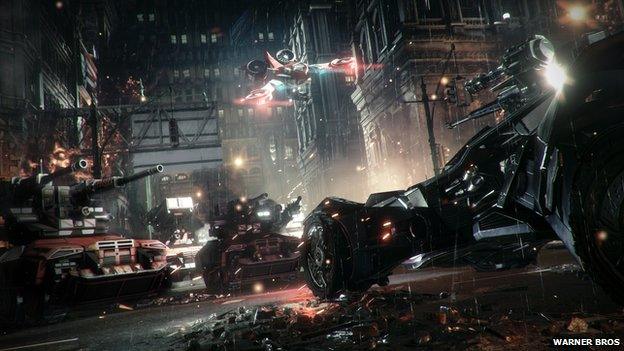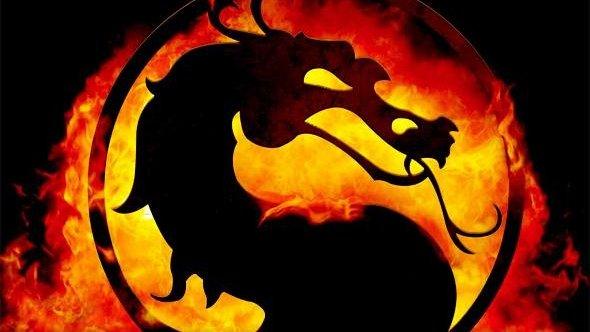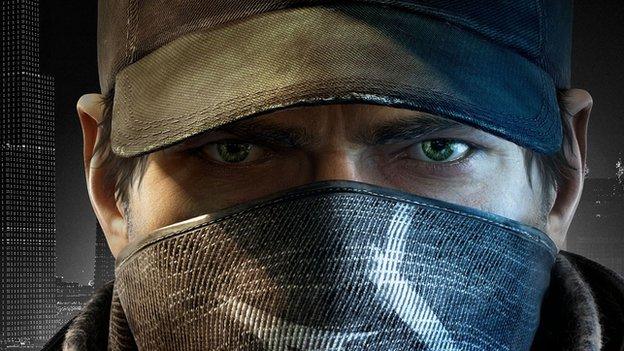Batman becomes latest 'blockbuster' game to suffer delays
- Published

Batman's developers unveiled new screenshots of the delayed game
The release date for the latest Batman video game, Arkham Knight, has been delayed until the beginning of 2015.
The adventure, which is the third in a series, was initially scheduled to go on sale for PlayStation 4, Xbox One and Windows PC platforms later this year.
The postponement follows a spate of delays to other high-profile games, including Dying Light, Mad Max, Quantum Break and The Order: 1886.
They are all "next gen" games, which use the most complex visual effects.
Mark Ward, a spokesman for Warner Bros Games - which owns the London-based developers of Batman, Rocksteady - said the decision to "extend the development of the game" was taken "to ensure that the trilogy gets the epic conclusion that Batman fans want and deserve".
Mr Ward added that Batman: Arkham Knight is the "most ambitious title Rocksteady has ever created".
High risk
The recently delayed "blockbuster" releases are all graphically intensive games, which use cutting-edge visual effects technologies and have high development costs.
Crucially, they are all next generation games, which are only available on the most up-to-date consoles, forcing devoted users to upgrade.
Ed Barton, an analyst at Ovum, told the BBC games developers were making fewer games and spending more on the titles they did produce.
Due to the risk of failure, which is "higher than it's ever been" companies prefer to "make the market wait a few more months and spend more on development," he added.

Some devoted Batman fans took to social networks to express their disappointment with the delay, but Warner Bros gave them a new teaser trailer, external to "keep them excited," said Chris Dring, editor of games magazine MCV.
While there is always a risk of alienating gamers with consistent delays, the "bigger risk is alienating gamers by making a bad game", added Mr Dring.
But, as Mr Barton points out: "If no-one is getting upset at your game being delayed, you know you have a problem."
- Published2 June 2014

- Published27 May 2014

- Published16 October 2013
